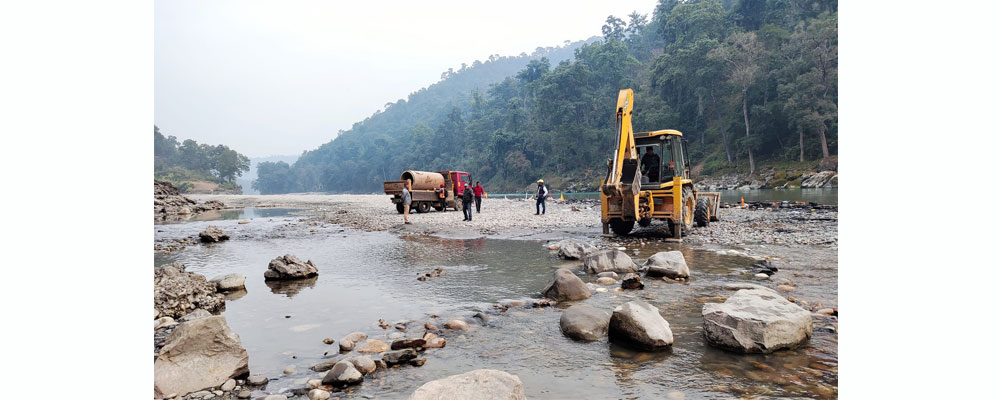Surkhet, Apr. 25: Birendranagar, the capital of Karnali Province, is again reeling under an acute shortage of drinking water as the water sources started drying up with the onset of summer.
Every year, this city faces the problem of potable water during the dry season.
Parwati Khadka of Kumaichowk, Birendranagar-4 is always worried about the shortage of drinking water. She said that she had been facing the problem of water scarcity with the arrival of the dry summer season.
The village lacks proper sources of water which the locals need from early in the morning till they go to bed at night, Khadka said.
The Surkhet Valley Water Supply Users’ Organisation (SVWSUO) has been distributing water in Birendranagar.
According to Dammar Gautam, SVWSUO chief, water level at sources estuary had decreased by 40 per cent. “After the water level has decreased in the sources, we are distributing water once every 72 hours,” he said.
The organisation is currently supplying drinking water to 20,000 consumers. It is collecting water from the Jhupra, Khari and Bari rivers and other small water sources located near the valley to distribute to the denizens.
Meanwhile, pre-construction works of the Bheri Pumping Project, which is pushed forward as a long-term solution to the problem of water shortage, are moving in full swing. The detailed project report (DPR) of the project supported by the World Bank has already been prepared.
The idea for the project was developed six years ago and an office has been in operation since May 2023 in Birendranagar. A tender was called for the construction of the project in September last year, and seven companies applied for this and five of them have been shortlisted. A construction company will be selected to build the project based on their financial plan.
Project head Sanjiv Kumar Shah said that works on the first phase of the project are currently going on. “Conditions of drinking water supply and sanitation in all 16 wards of Birendranagar have been analysed based on six indicators. “The construction of the project will begin based on the analysis,” he said.
Shah also said that survey design, the work of the second phase of the project, has also begun. Work on the second phase will begin after completing the contract signing of the first phase project, he said.
According to Shah, the goal is to complete the project within three years.
The project’s structure is situated in a forest area. World Bank will be covering 70 per cent expenses of the project while the remaining 30 per cent will be paid via the agreement between the province, local-level administrations, and unions.
The first stage of construction is estimated to require a budget of Rs. 3.26 billion. The whole project is estimated to cost Rs. 6 billion.
The water will be pumped up from near Bheri Bridge and the Jhupra River to Amrit Hill and will be distributed from there to the valley.
According to the project report, the Bheri’s water will be sent to the processing tank built 400 meters above the river from where water will be sent to Amrit Hill with a pipe of 7km long.
A pipe of around 550 millimetres will be connected from Amrit Hill to the main tank that will have a capacity to hold 12,000 cubic meters of water.



COMMENTS